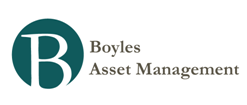Money and Finance
- Flipping Med Ed
To help medical students progress faster and find their calling in the field, two educators suggest moving content delivery out of the classroom may be the way to bring the students back in. The plan, featured in the October edition of Academic Medicine,...
- Online Learning, Personalized
SAN JOSE, Calif. — Jesse Roe, a ninth-grade math teacher at a charter school here called Summit, has a peephole into the brains of each of his 38 students. He can see that a girl sitting against the wall is zipping through geometry exercises; that a...
- Salman Khan Speaks At Web 2.0 Summit
...
- How Khan Academy Is Changing The Rules Of Education
Found via Simoleon Sense. For years, teachers like Thordarson have complained about the frustrations of teaching to the “middle” of the class. They stand at the whiteboard, trying to get 25 or more students to learn the same stuff at the same pace....
- Bill Gates' Favorite Teacher
Sal Khan, you can count Bill Gates as your newest fan. Gates is a voracious consumer of online education. This past spring a colleague at his small think tank, bgC3, e-mailed him about the nonprofit khanacademy.org, a vast digital trove of free mini-lectures...
Money and Finance
One Man, One Computer, 10 Million Students: How Khan Academy Is Reinventing Education
The headquarters of what has rapidly become the largest school in the world, at 10 million students strong, is stuffed into a few large communal rooms in a decaying 1960s office building hard by the commuter rail tracks in Mountain View, Calif. Despite the cramped, dowdy circumstances, youthful optimism at the Khan Academy abounds. At the weekly organization-wide meeting, discussion about translating their offerings into dozens of languages is sandwiched between a video of staffers doing weird dances with their hands and plans for upcoming camping and ski trips.
Pivoting, Salman Khan, the 36-year-old founder, cracks a sports joke appropriate for someone who holds multiple degrees from MIT and Harvard. It involves LeBron James (a Khan Academy fan), three-point shots and sophisticated algorithms called Monte Carlo simulations. The company’s 37 employees, mostly software developers with stints at places like Google and Facebook, are the types who know when to laugh. And they do.
It’s a prototypical Silicon Valley ethos, with one exception: The Khan Academy, which features 3,400 short instructional videos along with interactive quizzes and tools for teachers to chart student progress, is a nonprofit, boasting a mission of “a free world-class education for anyone anywhere.” There is no employee equity; there will be no IPO; funding comes from philanthropists, not venture capitalists.
“I could have started a for-profit, venture-backed business that has a good spirit, and I think there are many of them–Google for instance,” says Khan, his eyes dancing below his self-described unibrow. “Maybe I could reach a billion people. That is high impact, but what happens in 50 years?”
It’s a fair question, with an increasingly sure answer: The next half-century of education innovation is being shaped right now. After decades of yammering about “reform,” with more and more money spent on declining results, technology is finally poised to disrupt how people learn. And that creates immense opportunities for both for-profit entrepreneurs and nonprofit agitators like Khan.
………………..
Related book: The One World Schoolhouse
Related previous posts:
Related previous posts:
Salman Khan speaks at Web 2.0 Summit
How Khan Academy Is Changing the Rules of Education
Salman Khan on Charlie Rose
TED Talk - Salman Khan: Let's use video to reinvent education
Related link: Khan Academy
- Flipping Med Ed
To help medical students progress faster and find their calling in the field, two educators suggest moving content delivery out of the classroom may be the way to bring the students back in. The plan, featured in the October edition of Academic Medicine,...
- Online Learning, Personalized
SAN JOSE, Calif. — Jesse Roe, a ninth-grade math teacher at a charter school here called Summit, has a peephole into the brains of each of his 38 students. He can see that a girl sitting against the wall is zipping through geometry exercises; that a...
- Salman Khan Speaks At Web 2.0 Summit
...
- How Khan Academy Is Changing The Rules Of Education
Found via Simoleon Sense. For years, teachers like Thordarson have complained about the frustrations of teaching to the “middle” of the class. They stand at the whiteboard, trying to get 25 or more students to learn the same stuff at the same pace....
- Bill Gates' Favorite Teacher
Sal Khan, you can count Bill Gates as your newest fan. Gates is a voracious consumer of online education. This past spring a colleague at his small think tank, bgC3, e-mailed him about the nonprofit khanacademy.org, a vast digital trove of free mini-lectures...

